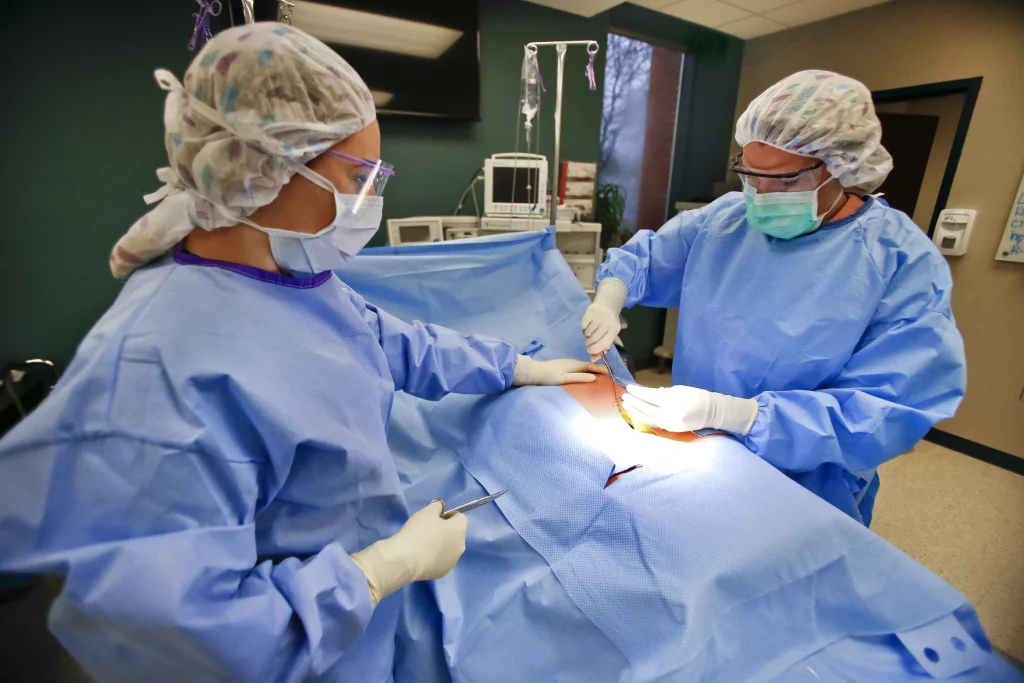Kansas- Taxpayer subsidies for health insurance have been available to millions of Americans since the Affordable Care Act took effect during the Obama administration.
But not for everyone.
Some people who earned too much money to qualify for Medicaid —and too little to afford policies from their employers that covered the rest of their families — found themselves caught in what became known as the “family glitch.” The government saw those workers’ individual employer policies as affordable, even if the cost of covering a spouse and children proved wildly expensive.
That’s changed.
Now those workers can enroll for health insurance in the Affordable Care Act Marketplace and qualify for government subsidies so they can buy coverage for the rest of their family members.
“(The ‘family glitch’) made a lot of people really disappointed,” said Kathy Hempstead, a senior policy advisor at the Robert Wood Johnson Foundation. “They (would) go to the marketplace and see, ‘Wow, it’s like $1,300 a month to cover my family. You know I’m so disappointed.’
“So now,” she said, “a lot of people are gonna find that they’re eligible for subsidies and the cost is more reasonable.”
The ACA Marketplace enrollment period started Tuesday. It runs through Jan. 15. People who want their coverage to start at the beginning of 2023 need to enroll by Dec. 15.
Experts say the changes that expand who qualifies for subsidies likely will mean more people can buy health coverage.
“A huge number of people just were not able to afford the premiums,” in previous years, said Kate Gramlich, a project specialist with Cover Kansas. The organization helps people navigate the ACA Marketplace. “So they just went uninsured. And so we’re hoping that there is a huge bump in enrollments and in coverage for Kansans with this being fixed.”
The update changing the “family glitch” could make coverage more affordable for about 40,000 more Kansans.
“It’s a huge deal,” Gramlich said.
She said most of the people shut out by the old rules were women and children.
Subsidies and tax credits from the federal pandemic economic stimulus plan and the Inflation Reduction Act enacted earlier this year have largely offset increases in premiums by health insurance companies.
The Centers for Medicare and Medicaid service estimates four out of five people on the marketplace will qualify for plans that cost them $10 or less per month — after calculating in tax credits.
In Kansas, UnitedHealthcare entered several counties it didn’t sell coverage in last year. That’s giving people in some parts of the state new options.
All plans offered in Kansas are Exclusive Provider Organizations, meaning closed networks. So Hempstead recommends making sure a preferred doctor or hospital takes insurance from a particular plan before buying a plan.
And she said the process can be confusing. So ask for help. Navigators trained to help people find the best plans work out of 18 locations in the state. You can find them at getcoveredkansas.org or get online help through that website. Those navigators are paid for by taxpayers, so there’s no cost and no sales incentives for them.
“It can be super overwhelming,” she said. “This is a really huge decision.”
Hempstead said people who already enrolled through the marketplace shouldn’t automatically re-enroll in their existing plan.
“You still might see one plan is a better value than another,” she said, “ in a new year.”
Last year saw a record number of enrollees and experts expect to see demand for the marketplace to continue to rise.
University of Kansas economics professor David Slusky said the changes in the ACA policy will continue to drive more enrollment.
“The whole point of the ACA is to get the millions of Americans who are not getting health insurance through the previous existing systems, a way to get health insurance in affordable fashion,” said Slutsky. “That’s the goal. And we’re chipping away at it slowly.”
Samantha Horton reports on health for the Kansas News Service. You can follow her on Twitter @SamHorton5.
The Kansas News Service is a collaboration of KCUR, Kansas Public Radio, KMUW and High Plains Public Radio focused on health, the social determinants of health and their connection to public policy.
Kansas News Service stories and photos may be republished by news media at no cost with proper attribution and a link to ksnewsservice.org.













